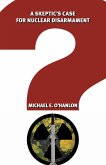When is the use of force for humanitarian purposes legitimate? The book examines this question through one of the most controversial examples of humanitarian intervention in the post Cold War period: the 1999 NATO intervention in Kosovo. In the face of contemporary problems of legitimacy and justification, this book offers a deep engagement with developments at the intersection of Habermasian communicative ethics and international relations. The result is a set of rigorous normative guidelines - the 'communicative imperatives' - intended for application in analyses of the process and legitimacy of international deliberations around the use of force. The book provides an innovative contribution to the theory of communicative ethics through which actors are able to critique and evaluate decisions to use force. The communicative ethics framework contributes a critical communicative dimension to the question of legitimacy that extends beyond the moral and legal approaches so often applied to the intervention in Kosovo. The application of the communicative imperatives reveals forms of communicative distortion which contests conventional accounts of the legitimacy of the use of force in Kosovo in ways which will be of interest to scholars and policy-makers alike. This book will be of interest to students of international security, conflict transformation, communicative ethics, critical theory, and international relations.








